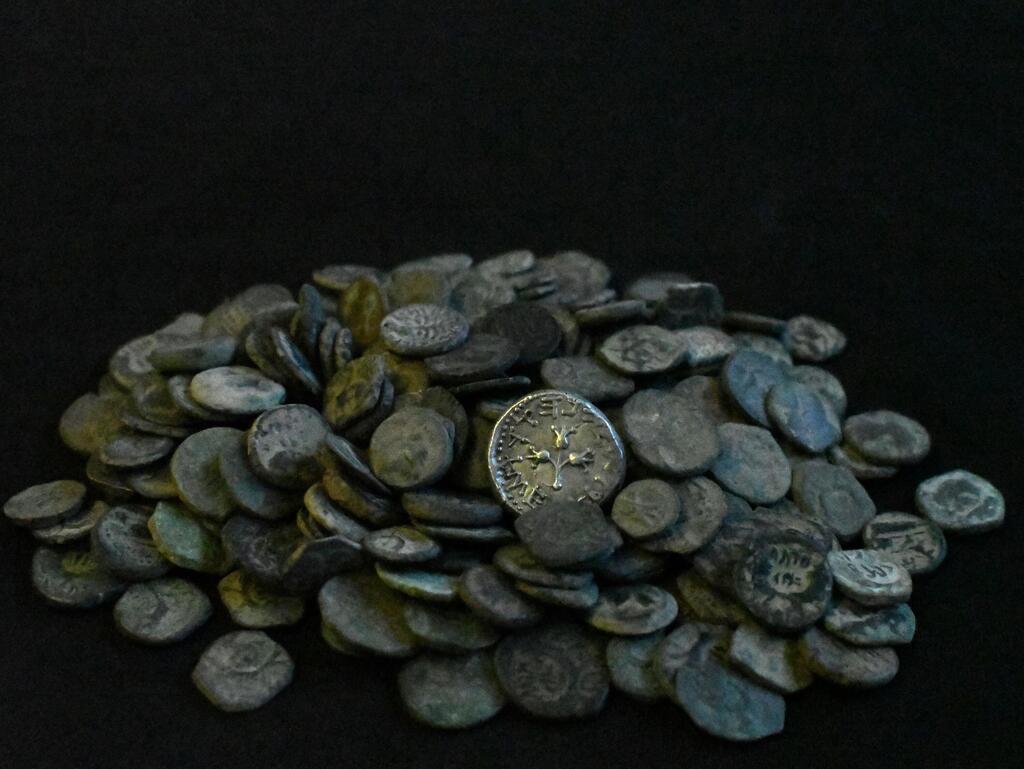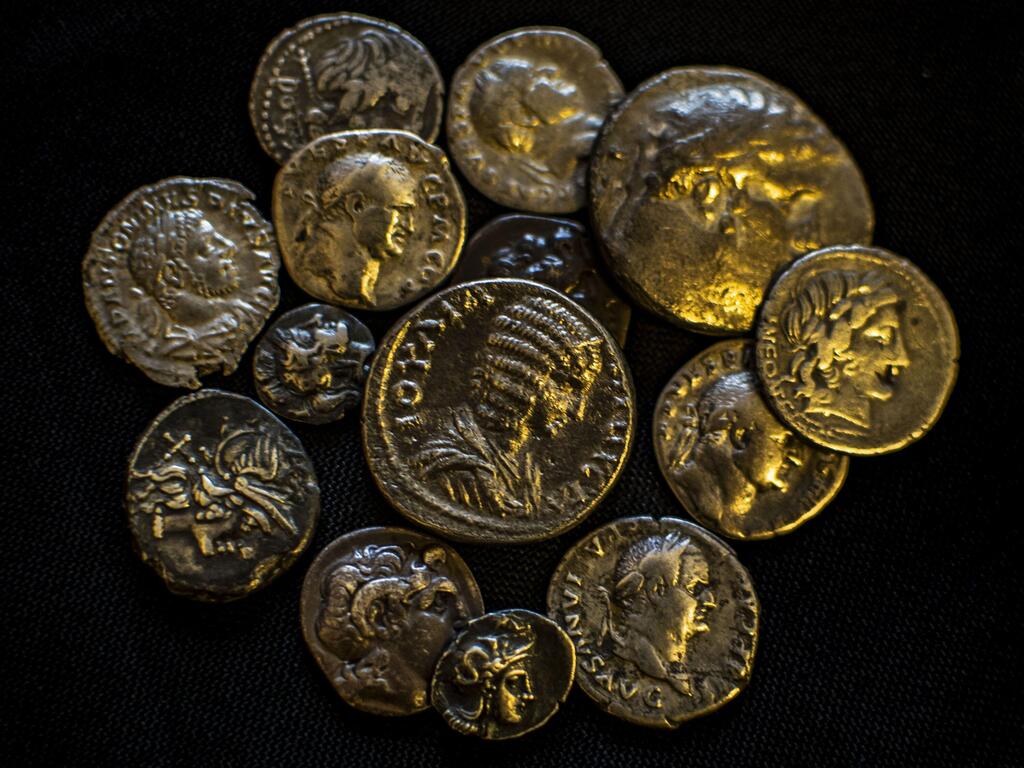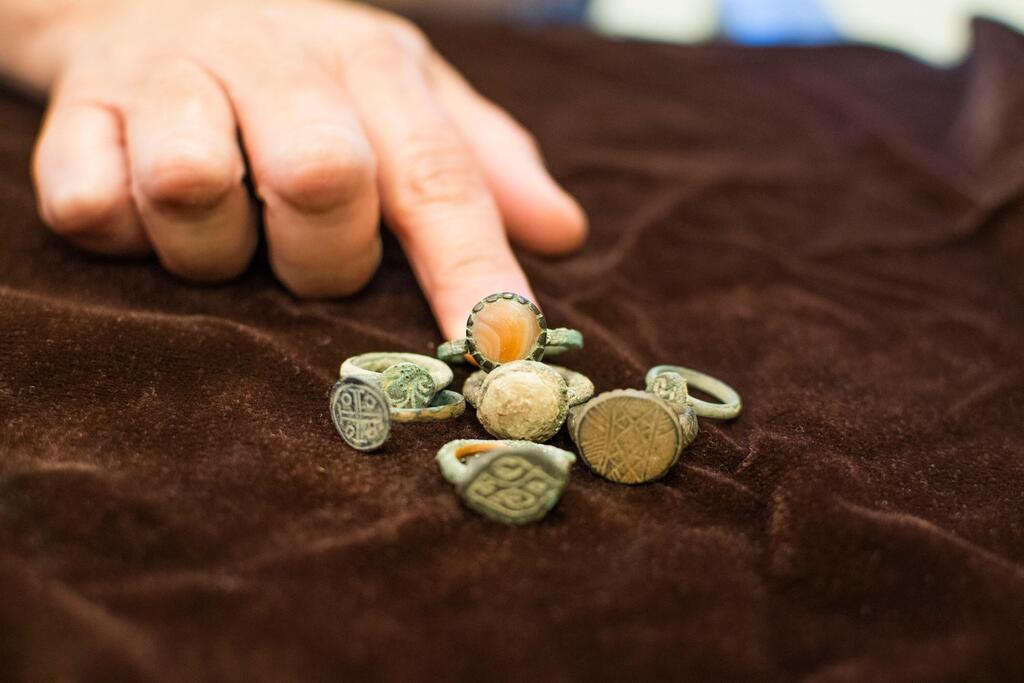Getting your Trinity Audio player ready...
Israel Antiquities Authority (IAA) announced on Thursday that some 1,800 antique coins, as well as jewelry, stamps, pottery with inscriptions, and an ancient bronze figurine were seized after they were stolen from archeological sites.
Among the objects seized were rare coins of great value and scientific importance, the IAA said, including silver coins from the Persian period, coins from the Hasmonean period over 2,000 years old, a silver shekel coin from the Great Revolt, silver coins from the Hellenistic period, bronze coins from the Roman period, and coins bearing the first name of the leader of the Bar Kochba Revolt – Shimon.
Inspectors of the IAA’s robbery prevention unit with the assistance of Israel Police officers, carried out a court ordered search of a residence in the city of Modi'in, earlier in the week, following suspicions that the owner of the house was engaged in illegal trade of antiquities.
During the bust, the inspectors noticed some coins and items were still covered with fresh dirt and suspected these objects were recently looted from illegal ancient excavation sites around the country.
In addition, a special silver coin of the ritual shekel was seized in the suspect’s home office. This is a Jewish coin from the days of the Great Revolt – 67 CE.
On one side appears the inscription “Holy Jerusalem” with a decoration of three pomegranates in a cluster, and on the other side – the inscription “Shekel Yisrael Year II” above a goblet decoration.
In another room in the house, dozens of coins were found inside postal envelopes bearing addresses of recipients abroad, which were ready for shipment.
"It is heartbreaking that many antiquities sites were destroyed by dealers just for money,” said Ilan Haddad, the IAA’s antiquities trade commissioner. “This is our history and because of their actions, we cannot restore the findings."
"We prevented the smuggling of ancient items from Israel to foreign markets, and the illegal dealer is suspected of having soled antiquities in violation of the law for a long period of time," Haddad said. "The suspect operated while covering his tracks, and we suspect he systematically smuggled thousands of coins from Israel abroad,” he said.
During his interrogation, the suspect admitted to illegal trade, trafficking hundreds of coins that were sold abroad, buying stolen coins from dealers in the Palestinian Authority, and smuggling them into Israel illegally.
Eli Eskosido, director of the IAA, said the ancient artifacts belong to the state and the public. "Each coin has a unique story through which we can learn about Israel's history and heritage."
“Unauthorized dealers who purchase coins from robbers and thieves, encourage antiquities' theft and tear the artifacts away from their historical story. The Antiquities Authority will continue to act in cooperation with other law enforcement agencies, to thwart illegal trade of antiquities,” he added.
The robbery prevention unit said that in the coming weeks the investigation will be expanded to expose those who provided the coins to the suspect. At the end of the inquiry, the case will be transferred to the legal bureau of the Antiquities Authority, to weigh an indictment against the suspect.




